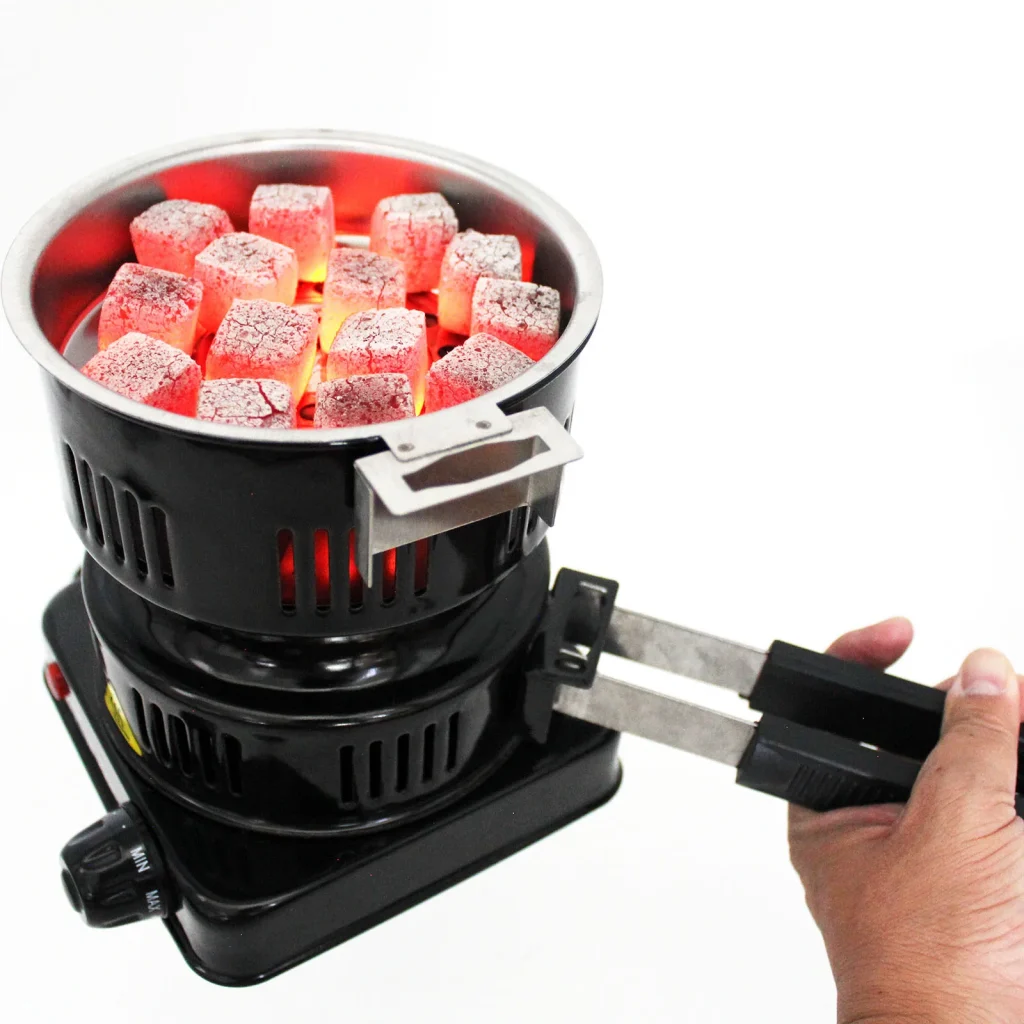Top coconut charcoal for low-emission grilling. Grilling is one of the most beloved cooking methods, offering rich, smoky flavors that can’t be replicated with other techniques.
However, traditional charcoal grilling is often associated with environmental concerns due to smoke emissions and the environmental cost of producing wood-based charcoal.
For eco-conscious grillers, the search for a cleaner, more sustainable alternative has led to the growing popularity of coconut charcoal. Not only is it a more sustainable option, but it also produces significantly lower emissions, making it ideal for low-emission grilling.
This article will explore why coconut charcoal is the top choice for low-emission grilling, focusing on its benefits, performance, and how it supports a greener, healthier cooking experience.
Top coconut charcoal for low-emission grilling
Coconut charcoal is made from the shells of coconuts, a byproduct of the coconut industry. After the edible parts of the coconut are harvested, the shells are typically discarded.
However, these shells are now being transformed into charcoal through a process of carbonization, where they are heated in low-oxygen environments to create charcoal. The result is a highly efficient, eco-friendly fuel that burns cleaner and longer than traditional wood-based charcoal.
Why Coconut Charcoal is Ideal for Low-Emission Grilling
1. Lower Smoke Production
One of the most significant advantages of coconut charcoal is its ability to produce less smoke compared to traditional charcoal. Traditional wood charcoal can generate thick clouds of smoke, which may contribute to air pollution and create an unpleasant cooking environment.
Coconut charcoal, on the other hand, burns more cleanly and produces minimal smoke. This not only reduces air pollution but also provides a healthier grilling experience, especially for those grilling in smaller, enclosed spaces.
2. Consistent Heat with Minimal Emissions
Coconut charcoal delivers steady, consistent heat while emitting fewer greenhouse gases. During the grilling process, it releases much lower levels of carbon dioxide and carbon monoxide compared to conventional charcoal.
This makes it an environmentally friendlier option for those who want to enjoy grilling without the heavy environmental footprint. The consistent heat distribution also makes it easier to control cooking temperatures, ensuring perfectly grilled food without the worry of sudden heat spikes.
3. Sustainable and Eco-Friendly
Coconut charcoal is made from a renewable resource—coconut shells—that would otherwise go to waste. The production process of coconut charcoal is also more environmentally friendly than wood-based charcoal, which requires cutting down trees.
By using coconut shells, we reduce the need for deforestation, supporting sustainable agriculture and promoting a circular economy. This helps minimize the environmental impact, making coconut charcoal the top choice for those committed to eco-friendly grilling practices.
4. Minimal Ash Production
Another reason why coconut charcoal is perfect for low-emission grilling is its ability to produce minimal ash. Traditional charcoal often leaves behind a significant amount of ash, which can clog up grills and require extensive cleaning.
Coconut charcoal, in contrast, produces very little ash, which means less mess to clean up after grilling and fewer particulates released into the air. This not only benefits the environment but also makes the grilling process more convenient and enjoyable.
5. Longer Burn Time and High Heat Efficiency
Coconut charcoal is highly dense and burns more slowly than wood charcoal, resulting in a longer burn time. This extended burn duration reduces the need to add more charcoal during grilling, allowing for uninterrupted cooking sessions.
Additionally, coconut charcoal burns at a higher temperature, ensuring faster cooking times without sacrificing food quality. This efficiency is key for low-emission grilling, as it maximizes fuel usage while minimizing waste.
6. No Chemical Additives
Many traditional charcoal products contain chemical additives to help with ignition or maintain heat. These chemicals can release harmful emissions when burned, contributing to air pollution and potentially affecting the flavor of the food.
Coconut charcoal, however, is free from chemicals and additives, offering a pure, natural grilling experience. The absence of harmful substances makes coconut charcoal not only safer for the environment but also healthier for the user and the food being cooked.
7. Better Flavor Retention
Because coconut charcoal produces less smoke and burns cleanly, it allows the natural flavors of the food to shine through. Traditional charcoal can sometimes impart a bitter, smoky taste to grilled food due to the excess smoke and ash.
Coconut charcoal, with its clean burn, enhances the grilling process by preserving the true taste of the food. For grilling enthusiasts who value flavor, coconut charcoal provides the perfect balance of smokiness without overwhelming the natural taste of meats, vegetables, and other grilled items.
Reasons Coconut Charcoal is Suitable for Low Emission Roasting
When selecting the best coconut charcoal for low-emission grilling, consider the following:
- Briquette Quality Choose high-quality coconut charcoal briquettes that are tightly compressed and uniform in size. High-density briquettes will provide longer burn times and better heat efficiency.
- Additive-Free Ensure that the coconut charcoal you select is free from chemical additives or accelerants. Pure, natural coconut charcoal is the best option for clean grilling.
- Trusted Brands Look for reputable brands known for producing sustainable, eco-friendly coconut charcoal. Brands that prioritize sustainable sourcing and ethical production methods will offer the highest quality charcoal.
Conclusion
For grill enthusiasts looking to reduce their environmental impact, coconut charcoal is the top choice for low-emission grilling. Its cleaner burn, minimal smoke, and sustainable sourcing make it an excellent alternative to traditional wood-based charcoal.
By choosing coconut charcoal, you can enjoy long-lasting, high-quality grilling sessions while minimizing your carbon footprint and promoting a healthier cooking environment. Whether you’re hosting a backyard barbecue or simply grilling dinner for your family, coconut charcoal offers a superior, eco-friendly grilling solution that benefits both you and the planet.
Related Posts

Teknologi Pertanian Modern Padi untuk Produktivitas Maksimal

Analisa Usaha Jasa Panen untuk Peluang Menguntungkan
